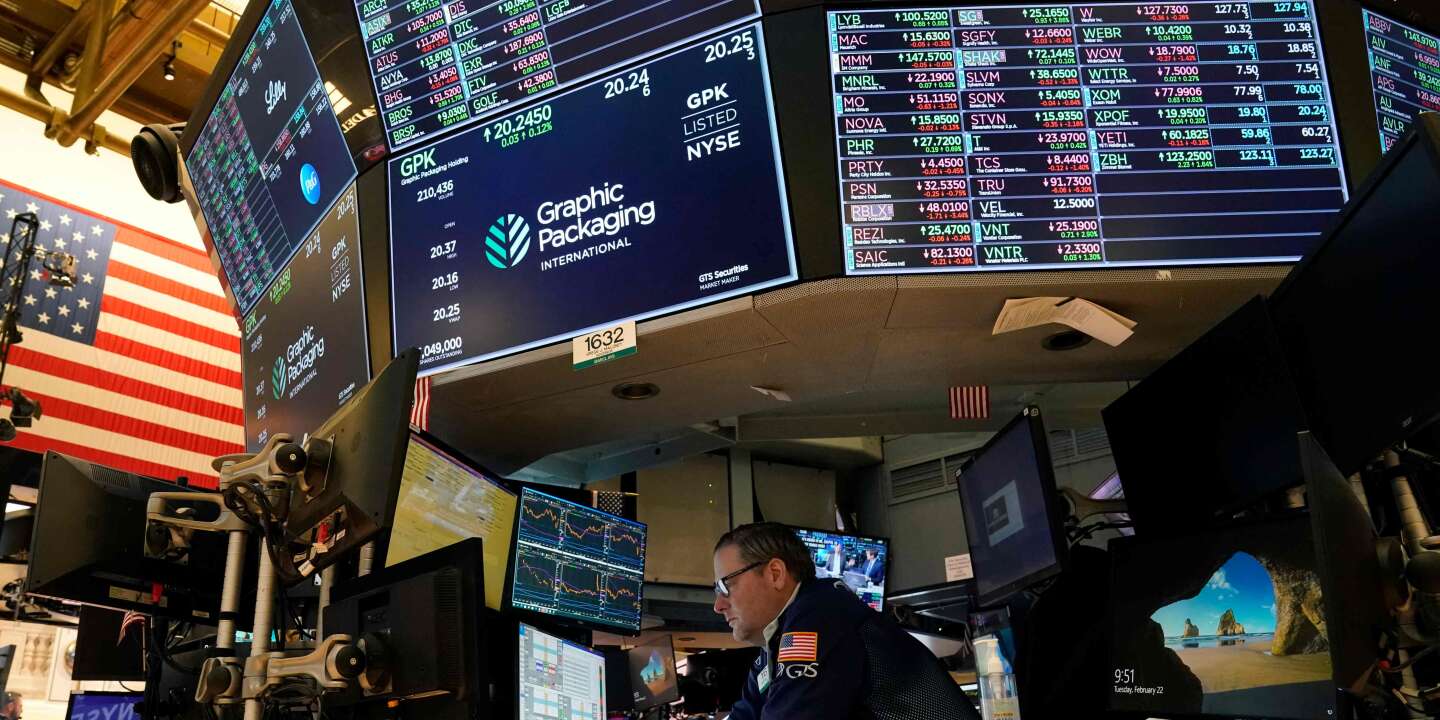The equity and commodity markets reacted in a generally measured way, Tuesday, February 22, the day after Moscow’s recognition of the two separatist regions of Donbass, the Russian army having not invaded its neighbor and the first economic sanctions appearing to be more gradual than massive.
In New York, the Dow Jones fell by 1.41% and the Nasdaq (technology stocks) by 1.23%. The S&P 500 closed 1% lower, bringing the Wall Street benchmark’s losses to more than 10% since its all-time high in January. In sharp decline on Monday, the CAC 40 remained stable (0.01%) in Paris, while the Footsie gained 0.13% in London and the German DAX fell by 0.26% in Frankfurt.
Concerns about supplies
While the equity markets were hesitant after a sharply lower opening, those of the raw materials recorded increases, a sign of strong concern about future supplies. Its oil and gas resources give Russia considerable power, and Joe Biden does not seem ready to attack its exports, which would only inflame prices at their highest level in seven years.
“The sanctions imposed today, and those that may be decided soon, do not target the flow of oil and gaswarned an American official on condition of anonymity. We want the market to note that there is no need to raise prices at this time. » Consumer countries and the Organization of the Petroleum Exporting Countries (OPEC) collaborate, according to him, “to cope with any price spike”. In London, a barrel of Brent ended the session up 1.52% (to 96.84 dollars), after reaching 99.50 dollars in the morning. The movement can only satisfy Vladimir Putin. Black gold is the country’s primary source of foreign currency, and it boosts state budget revenue.
“Destabilizing the geopolitics of wheat”
Berlin’s suspension of certification of Nord Stream 2, the gas pipeline linking Russia to Germany, has led to a 10% increase in gas, which risks sending electricity prices back up in Europe. Gazprom, which provides more than 40% of imports from the European Union, has undertaken to honor its contracts; but uncertainty weighs on the months to come, when it will be necessary to rebuild stocks at their lowest level in anticipation of next winter.
In Chicago, the price of wheat gained 6%. Such an increase is explained by the weight of the two countries at the center of the crisis: Russia and Ukraine are the first and fifth world exporters, and part of the rich Ukrainian cereal land is in the Donbass. “There is a risk of fewer deliveries, therefore of food shortages in regions where it can also represent political instability”estimated the president of the FNSEA, Christiane Lambert, on Tuesday, on BFM-Business. “The destabilization of the geopolitics of wheat is very worrying”worries M.me Lambert, as well as possible Russian sanctions against exports of French agricultural products.
–


